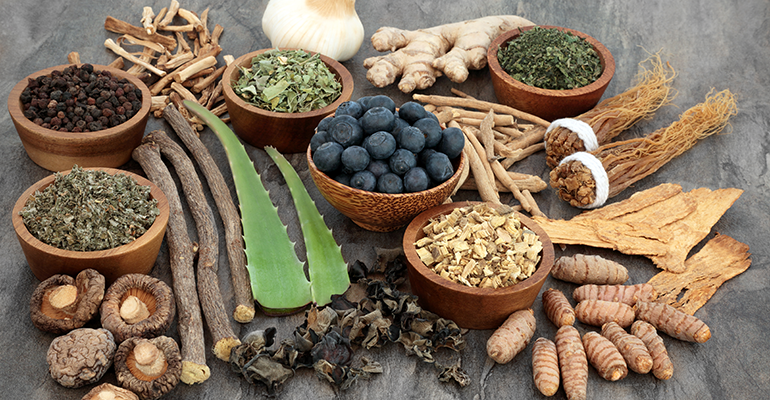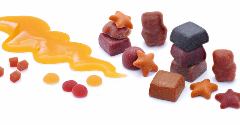News
‘Cognitive-enhancing’ ingredients remain novel yet niche
6 Mar 2023
Adaptogens, nootropics and nervines such as ashwagandha, lavender, hops, and l-theanine are popular among food and drink trend forecasts, yet the regulatory landscape remains challenging.
Ingredients that claim to optimise brain functioning, manage stress levels and improve cognitive capacity are growing in interest. However, as regulatory approval of claims about these ingredients can be the exception rather than the rule, the industry seeks a better understanding of their purpose and impact.

Industry insiders say research is needed before emerging cognitive ingredients can go mainstream. Market intelligence provider Mintel says scientific understanding is especially important for potential new ingredients like psilocybin, a psychedelic compound identified in mushrooms.
Calls for cognitive enhancement
In today’s burgeoning health and wellness sector, food and drink manufacturers are exploring terms like adaptogens, nootropics and nervines to market their new product launches.
The presence of these marketing messages aims to indicate the inclusion of ingredients that seek to provide cognitive benefits. Consumer interest in health, wellness, and nature underpins food and drink formulations that feature claims of improving mental performance.
Formulations that centre on optimising mental performance is a key global trend in 2023, Mintel highlights. As the relationship between consumption and wellness deepens following the Covid-19 pandemic, ingredients hailed as innovative seek to appeal to consumer calls for cognition-enhancing properties.
“Covid was the biggest wake-up call this generation has ever seen; we are not immortal, and we are what we eat and drink, so plants and their benefits have come to the forefront,” Malv Hayer, director at Operate Drinks, told Ingredients Network.
Pursuing mental performance benefits
Adaptogens
Adaptogens are plant-based chemicals or botanicals believed to help stabilise physiological processes, enabling the body to restore balance and support it with managing physical and mental stress. Ashwagandha, holy basil and schisandra are examples of adaptogens in today’s food and drink formulations.
UK-based drinks brand Peak Rise combines a mix of natural caffeine from guayusa superleaf and adaptogen ashwagandha. Marketed as a vegan and gluten-free product, the brand strives to ‘provide a peak state of clarity and focus’.
 Pictured: Adaptogenic foods © AdobeStock/marilyn barbone
Pictured: Adaptogenic foods © AdobeStock/marilyn barbone
Nootropics
Nootropics in food and drinks aim to enhance cognitive functions such as improving alertness and focus. Manufacturers are exploring L-theanine and γ-aminobutyric acid (GABA) in their formulations. Nootropics have built a reputation as ‘smart drugs’ that can treat cognitive impairments.
“Nootropics are not that new,” says Haver. “Gamers have been using them for years to be sharper and last longer [and] caffeine is sold on every street corner now, but the long and short-term effects are not good for your health,” Haver adds. “To be able to focus your mind on what is important, the likes of Maca, Griffonia and Theanine will help to sharpen your mind without the jitters or preventing sleep,” Haver details.
The sports drinks market is a captive audience. Operate Drinks worked with functional drink development specialists Brand Relations to guide them through their research and development (R&D). They collaborated with Dr Lilla, Brand Relations’ resident chemist, to advise on ingredient selection.
Talking about the inspiration behind Operate Drinks and using nootropics, Haver says: “We wanted to offer a sugar-free alternative that would give competitors the edge, drinks that footballers, for example, would be proud to be seen drinking rather than filling a sponsor’s bottle with their own concoctions.”
The use of nootropics is expected to grow significantly in the North American market by 2026, accounting for approximately almost half (46%) of its global market share. “The whole industry is talking about nootropics since the massive growth in the US, and as usual, the UK is following fast”, Haver details.
Nervines
Nervines also originate from plants. The herb is often associated with having calming properties and supporting mental wellbeing. Chamomile, hops, lavender, and passionflower are botanical ingredients manufacturers are exploring in their new product developments (NPDs).
Transparency leads in manufacturers’ communications
Despite rising consumer and industry curiosity into cognitive health ingredients like adaptogens, nootropics and nervines, they remain niche due to limited research backing their potential.
A comprehensive and clear understanding of the efficacy and effects of these ingredients is necessary for manufacturers to maximise the success of their cognitive-focused formulations. Before these ingredients can enter mainstream manufacturing, they must garner credibility. Ingredients that can prove their ability to improve focus and productivity will develop long-term acceptance and firm trust with consumers.
Focusing on the science and research behind these natural and functional ingredients is vital for manufacturers exploring cognitive ingredients such as adaptogens, nootropics and nervines. Consumers want to know that their chosen products will deliver on their claims to benefit cognitive functioning and overall mental performance.
Food and drink brands need to be transparent, informing and educating consumers with accurate, reliable, consistent, and evidence-based insights.
Related news

Bone broth: From old-fashioned to en vogue
24 Nov 2025
OXO’s entry into bone broth has turned the spotlight on this small but high-performance category – and there is still scope for growth, especially in the area of GLP-1 support.
Read more
Matcha madness: Why green is this year’s hottest colour
19 Nov 2025
Five years ago, it was a struggle to find matcha outside of Japan. Now it seems to be popping up everywhere, from coffee shops to supermarket shelves.
Read more
How younger consumers are redefining ingredient choices and rejecting brand loyalty
18 Nov 2025
Gen Z and millennial consumers’ preferences for transparency, functionality, and purpose are “redefining the very nature of consumption itself”, says SPINS.
Read more
Hybrid formats and flexible positioning to disrupt category norms in 2026
17 Nov 2025
Trend forecasters expect food and drink to move more fluidly across occasions, functions, and formats as consumers seek versatility, novelty, and convenience.
Read more
Empowering innovation in fortification and colouration
13 Nov 2025
Divi’s Nutraceuticals offers a large portfolio of innovative, high-quality ingredients for foods, beverages, and supplements, with bespoke solutions and expert support for product success.
Read more
Predictive maintenance redefines powder mixing reliability
13 Nov 2025
Mill Powder Tech's smart control systems harness real-time data to help the food and biotech sectors achieve zero downtime and smarter output, alongside rigorous GMP standards and ambitious ESG goals.
Read more
From fruit to functional solutions: Meet Paradise Fruits at Fi Europe in Paris
13 Nov 2025
Paradise Fruits Solutions and Paradise Fruits Health will showcase their combined expertise in delivering innovative, fruit-based solutions to the food and beverage industry at the upcoming Fi Europe trade show (2-4 December 2025, Paris).
Read more
Danone highlights digestive health as potential ‘tipping point’ for food industry
13 Nov 2025
Danone is betting on a food industry “tipping point” that will bloat the market for healthy products, particularly those related to gut health.
Read more
Bord Bia presents Irish dairy ingredient suppliers at Fi Europe
6 Nov 2025
Dairygold Co-operative Society, The Carbery Group, and Ornua Co-operative: Meet with sustainable producers of Irish dairy ingredients at Food ingredients Europe 2025, Hall 7.2 Stand M18.
Read more
Ingredient quantities mislabelled on popular protein bars, independent tests show
5 Nov 2025
Some popular protein bars contain more fat, carbs, and/or sugars than claimed on their labels, independent nutrition testing reveals.
Read more